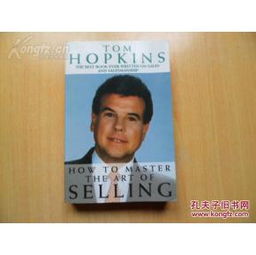Content:
Introduction: Fishing is an ancient pastime that has been enjoyed by people across the globe for centuries. Whether you're a beginner looking to cast your line for the first time or an experienced angler aiming to refine your skills, mastering the art of fishing requires patience, practice, and a willingness to learn. In this article, we will delve into the essential tips and techniques that will help you improve your fishing skills and make your time on the water more enjoyable and successful.
Understand the Basics: Before you can begin to improve your fishing techniques, it's crucial to have a solid understanding of the basics. This includes knowing how to tie knots, how to read a map, and how to identify different types of fish and their habits. Familiarize yourself with the local fishing regulations and the types of equipment you'll need for the species you're targeting.
Choose the Right Equipment: The equipment you use can significantly impact your fishing success. Invest in quality gear that is appropriate for the type of fishing you plan to do. Here's a breakdown of the essential equipment:
a. Rod and Reel: Select a rod and reel that match the type of fishing you'll be doing. For example, a spinning rod and reel are great for freshwater fishing, while a baitcasting setup might be better for saltwater species.
b. Lures and Bait: Research the types of lures and bait that are most effective for the fish you're targeting. Live bait, artificial lures, and flies can all be effective, so experiment to see what works best in your fishing environment.
c. Tackle Box: A well-stocked tackle box is essential. Include a variety of hooks, sinkers, swivels, leaders, and other accessories that will help you adapt to different fishing situations.
Learn to Cast Properly: Casting is a fundamental skill in fishing. Practice casting in a wide, open area to get a feel for the technique. Here are some tips to improve your casting:

a. Hold the rod correctly: Grip the rod with your index finger and thumb near the reel, and use the remaining fingers to stabilize the rod.
b. Use a smooth, controlled motion: Avoid jerking or snapping the rod. Instead, use a smooth, sweeping motion to cast.
c. Adjust for wind: If you're casting into the wind, you may need to adjust your casting technique to ensure your lure lands where you want it.
Master the Art of Bait Presentation: Once you've cast your line, the way you present your bait or lure to the fish is crucial. Here are some tips:
a. Slow down: Often, the most effective way to catch fish is to move your bait or lure slowly. Let it sink to the desired depth and then start retrieving it at a slow pace.
b. Vary your retrieve: Experiment with different retrieves, such as a steady pull, a twitch-and-pause technique, or a slow roll. This can mimic the natural movement of prey and trigger strikes.
c. Watch for strikes: Pay close attention to your line. If you feel a tap or a sudden pull, set the hook quickly.
Develop a Patience and a Sense of Observation: Fishing is as much about patience as it is about skill. Learn to observe your surroundings and the behavior of the fish. Look for signs of fish activity, such as splashes or surface disturbances. Patience will also help you adjust your techniques based on the conditions and the fish's behavior.
Keep Learning: The best anglers are always learning. Read books, watch instructional videos, and join fishing forums to stay updated on the latest techniques and tips. Additionally, consider taking a fishing class or joining a fishing club to learn from experienced anglers.
Conclusion: Improving your fishing techniques is a journey that requires time, practice, and a commitment to learning. By understanding the basics, choosing the right equipment, mastering casting and bait presentation, and developing patience and observation skills, you'll be well on your way to becoming a skilled angler. Remember, the best way to improve is through experience, so get out there and start fishing!












